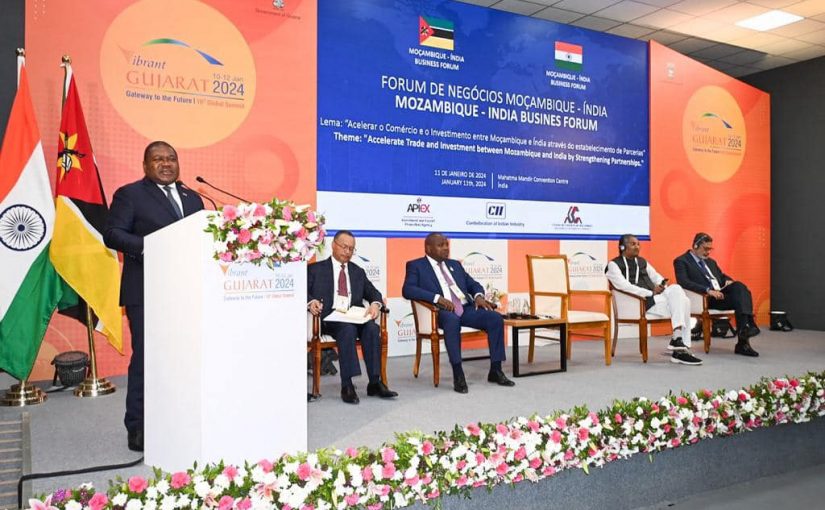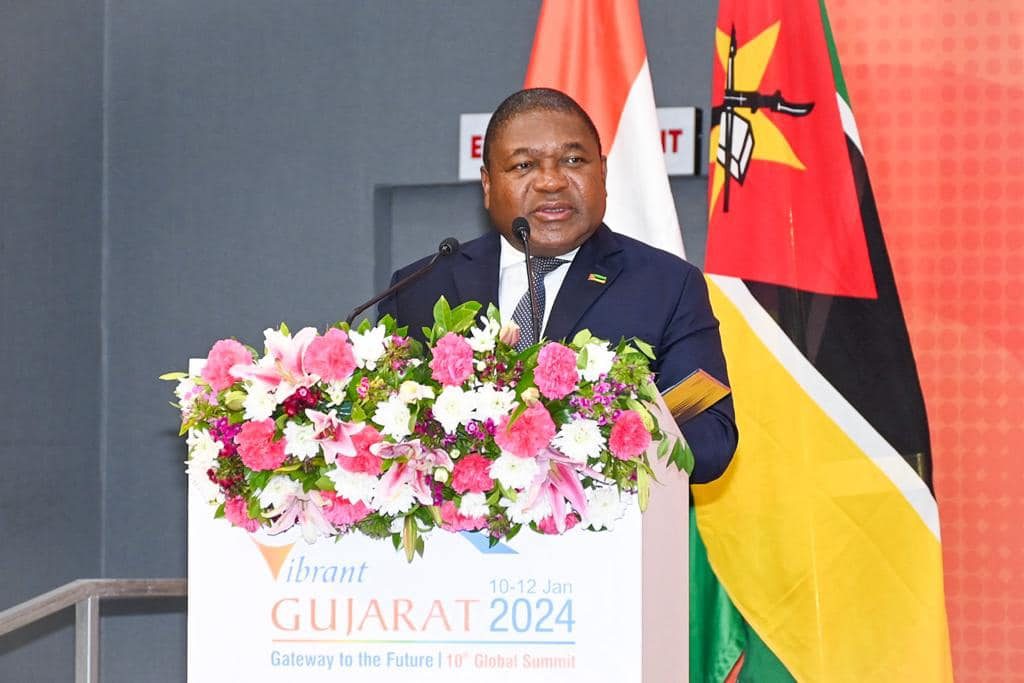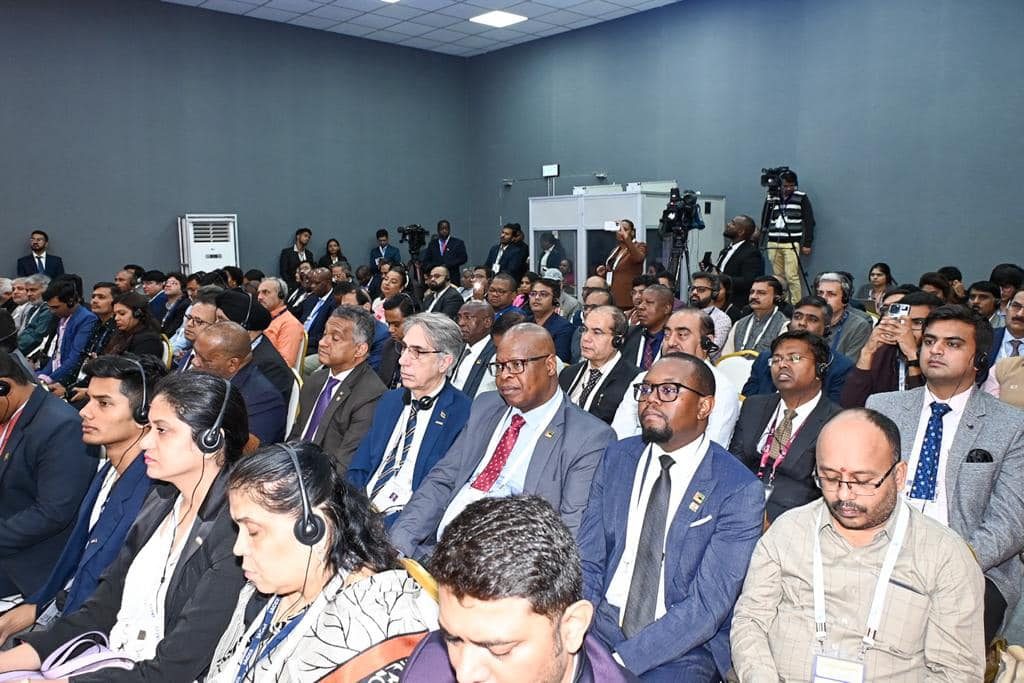Mozambique: Digitalization of public administration crucial for reducing corruption
Mozambique: Security fundamental to attract investment to country – president

Photo: Presidente Filipe Nyusi / Facebook
Mozambican president Filipe Nyusi has pointed to security as a condition for attracting investment to the country, considering that stability is a priority for his executive.
“Where there is no security, nobody invests,” said Filipe Nyusi, during a meeting with the Mozambican business community accompanying him on his four-day working visit to India on Wednesday.


For Filipe Nyusi, although terrorism in Cabo Delgado is one of the main challenges, Mozambique needs to create security conditions against all kinds of threats, a condition for creating a good business environment.
“We have to look at all types of security down to the detail, not just terrorism,” emphasised the Mozambican head of state, who highlighted Mozambique’s “economic potential” for investment.
“We have to be more aggressive economically or commercially. Look for solutions and, at every moment or when there are obstacles, be persevering and resilient,” added the Mozambican head of state.
Since 2017, rebel groups have been terrorising Mozambique’s northern Cabo Delgado province, a conflict that has left one million displaced, according to the United Nations High Commissioner for Refugees (UNHCR), and around 4,000 dead, according to the ACLED conflict registration project.
The head of state’s meeting with Mozambican businessmen in India comes ahead of a business forum between Mozambique and India, as part of the 10th edition of the Gujarat Global Summit, which is taking place in that Asian country.
Filipe Nyusi’s visit to India is the result of an invitation from the Indian prime minister, Narendra Modi, with whom Filipe Nyusi first attended the inaugural ceremony of the Summit and then a bilateral meeting.
Filipe Nyusi is visiting India at a time when a court dispute between two companies over the liberalisation of pigeonpea (cajanus cajan) exports to India has led to dozens of tonnes of the product being blocked at Mozambican ports.
At the end of December, the Confederation of Economic Associations of Mozambique – CTA clarified that the withheld pigeonpeas are already being exported to India, reiterating “free access to the market” as the best option to avoid similar problems.
The export of pigeonpeas to India, which is the main market for this product, is the result of a memorandum of understanding with Mozambique, signed in 2016, providing for exemption from customs duties for Indian importers.
India is the largest producer and consumer of pigeon peas, with the Indian press indicating a 10% rise in the price of the product in the country in two months, precisely because of the difficulties in importing from Mozambique.













Leave a Reply
Be the First to Comment!
You must be logged in to post a comment.
You must be logged in to post a comment.